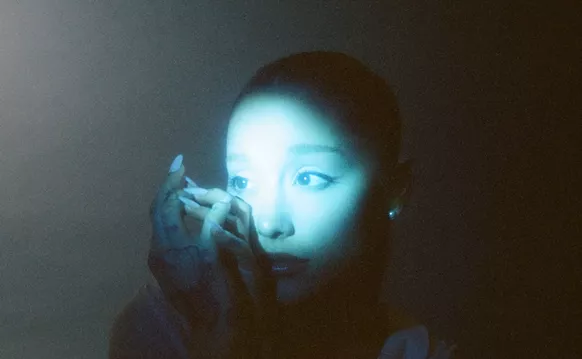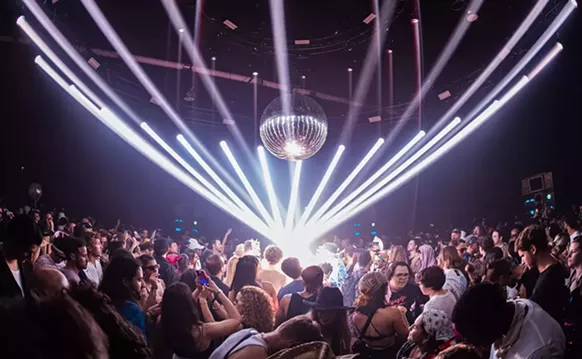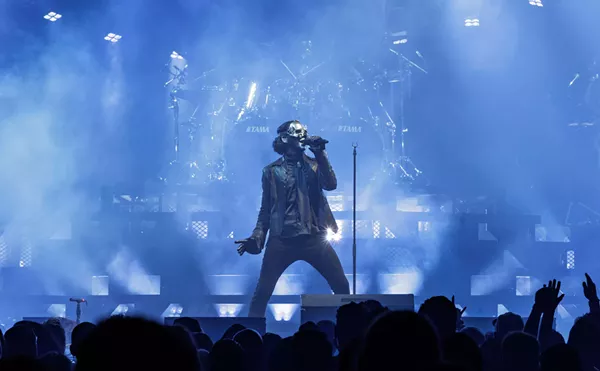New Times: Do you see the West's musical ethnocentrism beginning to unravel?
Mickey Hart: It is. It was inevitable. Remember, in the old days world music was second- and third-rate music. You didn't think that anything else aside from classical music from Europe was first-rate. That, of course, is not the case. There are virtuosos all over the world in places you've never heard of playing music you've never heard of. Music permeates the whole planet, every culture....
NT: For so long Anglo music was viewed as being more evolved somehow.
MH: Exactly. And the rest was savage music. There were many words for it, but it was never thought of as "the best." Whenever you said "ethnic" or "folk" music, it always sounded lesser. For 200 or 300 years, it was this white art music from Europe and every other culture suffered under this imperialism. Then the church did the rest.
NT: Do you see a role this band can play in the aftermath of the recent terrorist events?
MH: Music is a marvelous healing agent, and to be able to see all cultures coming together and communicating is a great model for everyone. What happened in New York was a fringe thing, a fanatical horrible thing by some zealots. We have to be tolerant to Muslims and to all people, because that's what America is really all about. Patriotism should fall not necessarily only to the flag but to the planet. The whole planet's at risk. Some music is an antidote to hatred. That's what this band is all about.
NT: You're willing to sample sounds digitally -- though some purists feel that diminishes music's organic spirit.
MH: Who says that? What gives them the right to make any kind of boundary line on art? I say poppycock! [Laughs.] It's the effect that it has on the people who listen to it that's the real value and how they participate in it. I honor the old rhythms, and I practice them on a daily basis, but I also have one foot in the digital domain. I live in a very unique time in history where I have one foot in the archaic world and one foot firmly placed in the digital one. I love to process things. I love space. But I also love the sound of an acoustic drum.
I don't think anybody can really draw the line on great art -- that's sort of a pompous attitude to take. Some people mix the acoustic world and the digital world with what I consider very bad taste, but that's me personally. You can't say the digital domain "grays out" music. We're just learning to play with computers. And the opportunities available to us in the digital domain -- it makes my heart just jump right out of my chest! The possibilities that you can have with electronics, with MIDI, with synthesis... you can be in the Taj Mahal, the Grand Canyon, or you could be in Bali with a gamelan orchestra or at sea in a raging storm or you can be anyplace with this technology! A musician who's exploring these realms is living in a golden age.
NT: There are always closed minds around when new tools are invented. For instance your new computerized device RAMU (Random-Access Music Universe) has been met with some skepticism.
MH: That's right. I would say to all those people that they're barking up the wrong tree. They're not well informed about what really lies ahead, about the possibilities of the marriage between acoustic and binary code. Remember, it's in the hands of the practitioner. All the music, all the sounds around you are your orchestra: Why limit them? Any sound that you can perceive or create should be part of the soundscape of the next century and the centuries to come. The next century isn't going to sound like this one; the digital revolution has taken care of that. There will never be a change like you're going to hear now. The new technology will be powerful and smart and very friendly, and it will be an extension of your imagination. You will be able to go into cubbies you never could in the acoustic world, and it's going to be called for.
Things are moving fast, moving differently; there's different sounds and different feelings -- everything is changing. Music should change. Or die. That was the dream, and RAMU is the realization of that. Between these master percussionists and RAMU, we have every continent in the percussive zone represented. We have a stage full of instruments -- all we have to do is fall either way, and we'll make a sound! It's quite an array. I like to think of us as a Delta Force.
NT: Do the differing cultural musical conventions in Bembé Orisha clash?
MH: You have to pick your people well. Not all cultures mix. But the people in this band are able to give it up and not stay strict in their tradition. These people are fusion musicians; they want to come together to collaborate. Some cultures are not moveable. In this particular instance, all of these players are young; they're not ancients. They're able to move in and out of the shadows, as it were, and be able to converse. You just have to be true to the music, and the music will guide you and take you there. I see no obstacles -- all I see are assets. The only thing is you have to render the music with passion and spirit and pick the players and go out and play as hard as you can, with as much passion as you can. You're creating it on a nightly basis. These aren't cookie-cutter songs; there's much room for improvisation. So it's moment music. I never like to make my music crystallize before the moment. If you don't leave any room for magic, magic won't come. That's what I'm after, really, is the transformational moment: that magical moment of creation. That's what you want. You don't want re-creation. Re-creation is a lesser form, and it's not really for me. If you want to go out and play the record, that's one thing. That's not my idea. That's sort of a wasted life for me. I'm an improvisationalist, and I'd like to stay in the moment. That's what's real important to me.
NT: Will Deadheads be able to hear familiar themes?
MH: They might. We were experimental in nature, and we were a combination of many different cultures' music. We were spread all over the board. The Grateful Dead was a world-music band in some respects, but it worked its magic with Western instruments mostly. But there are some similarities. We were into the improvisational moment.
NT: Many people are still searching for a surrogate Dead.
MH: That's fine! Find it -- if you must. And you'll find it in many different places; you'll find pieces of it here and there. You'll be able to find pieces of it in other music. Go find it. It'll never be anything like the Grateful Dead.











